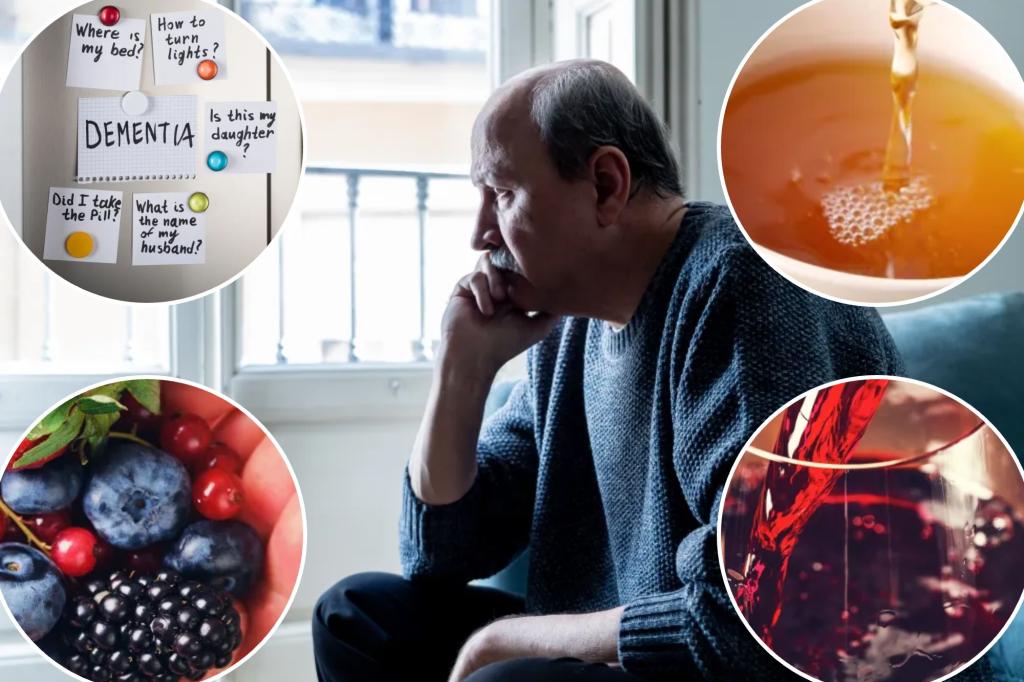A new study published in JAMA Network Open has found that consuming six additional servings of flavonoid-rich foods per day can lower the risk of dementia by 28%, especially for individuals with high blood pressure, depression, and high genetic risk. Flavonoids are natural substances found in fruits, vegetables, and other plants that have been shown to reduce brain inflammation, enhance blood flow to the brain, and promote the growth of beneficial bacteria in the gut. The study included nearly 122,000 UK residents between the ages of 40 and 70 and was led by researchers from Queen’s University Belfast. Participants were asked to report their dietary intake, and researchers assigned them a “flavodiet” score based on their consumption of specific flavonoid-rich foods such as tea, red wine, berries, apples, grapes, and dark chocolate.
The study found that individuals who consumed at least two servings a day of tea, red wine, and berries had the greatest risk reduction for dementia. Participants were followed for about nine years, and 882 dementia cases were recorded during this time. Those with the highest flavodiet scores had a lower risk of dementia compared to those with the lowest scores. The researchers also found that anthocyanin, flavan-3-ol, and flavone were the most strongly associated flavonoids with a reduced risk of dementia, with tea, red wine, and berries being the top sources of these beneficial substances.
Dr. Liron Sinvani, director of geriatric hospital services at North Shore University Hospital, believes that this research could help draw attention to the importance of including flavonoids in dietary recommendations for Americans. She suggested that public policies could highlight foods that are rich in flavonoids, similar to how physical activity and exercise are encouraged to reduce dementia risk and improve cognitive reserves. While the study had some limitations, such as relying on self-reported dietary habits and potential underreporting of dementia cases, the findings provide valuable insights into the role of flavonoid-rich foods in reducing dementia risk.
The study results challenge previous research suggesting that alcohol intake, including red wine, may not have any health benefits and could potentially increase health risks, especially with age. Sinvani noted that the benefits and risks of alcohol intake can vary from person to person, and individuals with vulnerabilities such as dementia or a higher risk of falling may be better off obtaining flavonoids from sources other than alcohol. However, she also mentioned that a small amount of red wine can provide flavonoids that may improve dementia risk. The study underscores the importance of a balanced diet rich in flavonoid-containing foods as a potential strategy for reducing the risk of dementia and promoting brain health.


